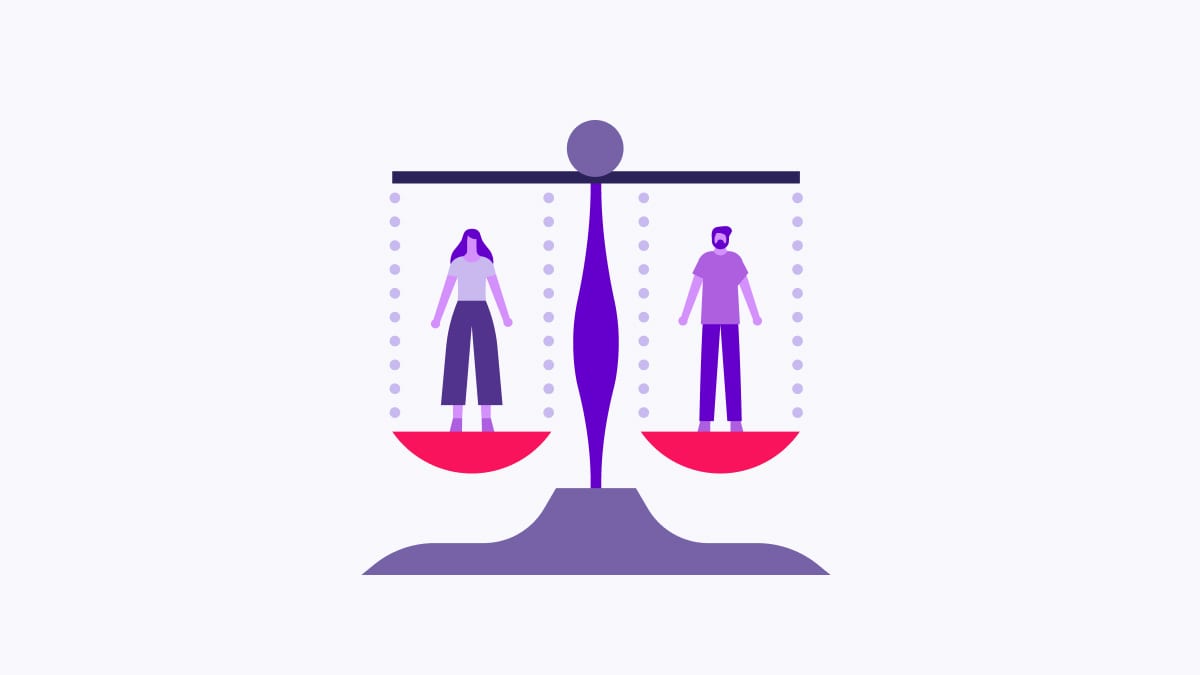Today is Equal Pay Day: Women still make about 82 cents on each $1 for White men, and many women of color won’t start marking their Equal Pay Day until well into summer. Compared with their White man counterparts:
- Black women earn 63 cents
- American Indian and Alaska Native women earn 60 cents
- Latinas earn 55 cents
- Asian American or Pacific Islander women earn 85 cents, though they face much starker wage gaps across ethnic groups.
In yesterday’s 19th newsletter, we asked subscribers to share how you have advocated for yourself in an effort to get the pay you deserve. We received many responses, underscoring just how prevalent this issue is for our community. We’re sharing some here from our subscribers, lightly edited, and you can read more responses or contribute your story on Twitter or Facebook. And sign up here to get the newsletter in your inbox.
‘I still kick myself for not negotiating upfront’
Stephanie: I was hired as an assistant vice president for development, managing a team of four executive directors. During the salary negotiation, I was told, “One of your direct reports, a man, makes more than you. There are reasons for it. It isn’t negotiable.” I felt pressured to accept the job as is, and I did.
A year later, when I had a new boss, I discussed this inequity with him and he secured a $20,000 raise for me. I still kick myself for not negotiating upfront but appreciate the advocacy that resulted in equity down the line. From then on, I made sure to negotiate for every salary.
‘I knew single women ministers were taken advantage of’
Andrea: When I entered pastoral ministry, that’s when the pay gap raised its ugly head. I found out when I applied for Social Security disability insurance (SSDI) 12 years ago that I’d be making more “disabled” than I’d ever made “on the job.” I knew women ministers got less pay. I knew single women ministers were taken advantage of. But when my SSDI came in at twice my weekly pay … and that was because in all my 30 years of ministry, I only had one year paid into Social Security on a $21,000 package.
‘The men … told us if we wanted equal pay, then they would take our coaching jobs’
Irene: In the later 1970s, I was a girls’ basketball coach and fought for equal pay, facilities, etc. for the women’s athletic programs. I called a meeting of all the coaches in the school system and told them about Title IX. Needless to say, the men were not happy and told us if we wanted equal pay, then they would take our coaching jobs. Unfortunately, as many of us had children and felt we had to stop coaching, the men took our jobs and now many women’s athletic programs are coached by men.
Later that year, my friend, who was the softball coach, sued for equal pay. It was denied by our superintendent and the school committee, but we fought it with the help of the Massachusetts Teachers Association and won. A new equal pay scale was proposed and agreed on by a committee of coaches.
That seems like ancient history, but the recent news about the NCAA women’s basketball tournament having inferior facilities certainly reminds us that we still have to fight for equality.
‘I accidentally found a spreadsheet … that outlined the pay of several newer hires’
Mandy: Several years ago, I received a promotion to the executive ranks of my company. It came with a bump in pay, but one I now know was very low compared to others on the same team. I think I got that offer because I hadn’t worked at that level before and didn’t know what to ask for.
A few months into my new position, I accidentally found a spreadsheet on our company Google Drive that outlined the pay of several newer hires. I saw that a guy who was essentially the CEO’s assistant, who was 10 years younger and had no management responsibilities, was making about $20,000 more than me. That lit a much-needed fire under me to advocate for myself. I didn’t mention the spreadsheet (though I did tell HR they should lock it down), but I did advocate for a larger salary due to the fact I was managing the largest employee group (by far) in the company and received what I asked for at my next performance review.
‘The EVP said to me … “You have a nice apartment, a sports car and you don’t have children. … What more could you need?”’
Lee: My story goes back a number of years, circa 2001 to 2002, and it still stings to this day. I was in my 40s, married with no children, and with a successful spouse. My manager, a man, retired and I was fortunate — grateful? — to be named successor as a senior manager at a bank and to assume his responsibilities. I made an appointment with my new manager, an executive VP, a man whose wife I was aware didn’t work, to discuss my compensation adjustment to reflect my new role, title and responsibilities. The EVP said to me in response to my request for a raise appropriate to the facts: “You have a nice apartment, a sports car and you don’t have children, so no tuitions to pay. What more could you need?”
I was furious then and remain furious these 20 years later. I always thought I should have replied, “I’m sorry, do you want me to sue you now or next week?” But I didn’t have the courage, and left the firm within two years, after an extremely successful 18-year career there.
P.S. I’ve thrived in an incredible environment at a terrific firm and I report to a tremendously supportive and fabulous EVP — a woman.
‘I received my salary increase and immediately started looking for another role’
Michele: The most obvious example of a pay gap was 10 years ago when I worked for a consultancy firm in the United Kingdom. I discovered that a male colleague who was junior in experience and role was earning 10,000 pounds more than me per year. I had to meet with my manager and let him know I was willing to resign unless he corrected the situation. I remember sitting across from him with my resignation letter in an envelope sitting on the table — unopened — waiting to see if he was going to say “no” and see if I was bluffing. He did not. I received my salary increase and immediately started looking for another role.
‘Becoming a mother gave me the newfound courage to make a bold ask’
Angie: I had just returned to work from maternity leave with my first child and knew I wanted to stay in the workforce, but also knew I needed to make more to afford day care. At the same time, I saw an opportunity to suggest a new organizational director level at my growing nonprofit employer to better manage the growth. I prepared a two-page proposal of my work accomplishments over the previous five years and an outline of how the new director level could help the organization be more effective and continue the growth trajectory. I presented the proposal to my supervisor, which included a promotion for her and another female colleague as well, and requested a 30 percent increase in salary for the additional responsibilities I would assume at the new level. The 30 percent salary increase would cover a full year of daycare, and make it more worthwhile for me to choose to stay in the workforce.
My supervisor advocated for the proposal and it was implemented by the organization five months later. Looking back, becoming a mother gave me the newfound courage to make a bold ask. The decision set the tone for my future income and showed me I should always ask and advocate for what my work is worth.
‘I asked to be paid fairly and I was fired’
Jenn: Six years ago I found out that I was being underpaid in comparison to my male colleagues. I asked to be paid fairly and I was fired. [My former employer] contested my unemployment and appealed (losing all times) so I had no income for six months. It ruined my credit and my financial future. But after a year break, I began to practice law on my own terms and six years later, I am the happiest I’ve been in my 11-year law practice.
There’s so much propaganda about how women don’t ask to be paid fairly, but we do. We don’t always get a legal response.






